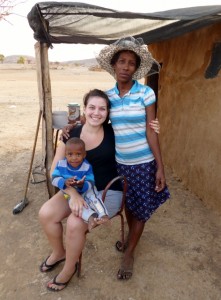 “Decolonizing the Mind.” When I received the program manual with this phrase on the front I thought I had an idea of what this meant and what I would be studying during my semester abroad, but after my rural homestay I have truly been pushed to breakdown my previous conceptions and challenge the ways I once classified people.
“Decolonizing the Mind.” When I received the program manual with this phrase on the front I thought I had an idea of what this meant and what I would be studying during my semester abroad, but after my rural homestay I have truly been pushed to breakdown my previous conceptions and challenge the ways I once classified people.
It was hard to acknowledge that before my rural homestay I had equated rural with poverty. I had taken a look at all the material things I have and judged households against this standard. By creating this category of “have”, my mind consequently narrowed in on what others did not have. So, admittedly, driving past farms, tin shacks, and mud huts there was a sympathetic wrenching in my stomach. At one point I considered volunteering in such communities, but I worried about my limitations or the negative effects of my “aid”. My first step toward reconciling these thoughts was to learn about “impoverished” communities.
My week on the Inhoek farm in Khorixas abolished all my previous conceptions and reasoning for wanting to learn from this rural community. From the first moment I stepped out of the CGE van, I began to look at this community for everything that they have, not for what they do not. Those things that I might have thought were lacking before had now dissipated and I began to admire their wealth of immaterial things. I even wondered if the absence of physical possessions that I saw was the reason for their strong sense of community, lively nature, and conservation of resources.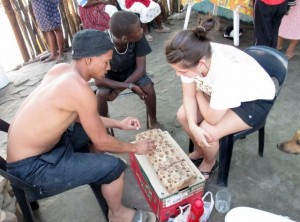
My host family lives in a small, two-room, cow dung hut that sits on a farm with several other families. The farm has no electricity, nor sewage, and a water trough that you carry water from and it is shared by the animals making the water unsafe at times. I imagine that for my host family there is a shortage of food, when me and my box of food aren’t staying with them, so there is a physical reality of problems that my family is facing and I don’t doubt that, if asked, there may be aspects they want to improve. However, these were never the focus of my thoughts while I was there and I didn’t worry about my host family because of the support the received from their neighbors.
Throughout the week, I never ate a meal with only my host family. I found myself at the neighbor’s house or children from the community at our home sharing what we had. Many of the families on our farm, who were more well off and had houses in the city, had goat and kudu meat that they contributed, while my mother would cook and share her fatcakes. It seemed that whatever you had, you shared. This unspoken expectation was incredible to me because even the families with little would divide up their food for the number of children that wondered over to their house. Fellow CGE students would mention that they would leave their house with one child and return with four, that they would then share dinner and the children would stay for the evening.
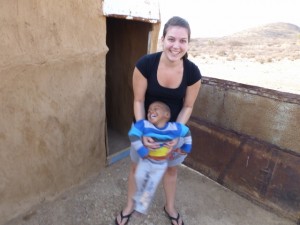 The fluidity of the community was another aspect I came to appreciate. Not only did I find myself with neighbors for dinner, but at every time of the day I was at a different house with different people. I was weird to me that I felt completely comfortable walking right in and felt welcome at any house on the farm even if they hadn’t met me yet. With the grannies that I couldn’t communicate well with, I was still always greeted and invited to sit and have some food or a drink. Even people who drove onto the farm to visit would stop their cars, talk to us and tell us to please enjoy our time. And this wasn’t just their fantastic hospitality, members of their community treated each other this way too. While my host father was gone, teenage boys were always at my house helping my mother with whatever she needed—they were especially great with my one year old little brother. Likewise, my mother frequently visited her neighbors each day to see if they needed help or just to offer some company.
The fluidity of the community was another aspect I came to appreciate. Not only did I find myself with neighbors for dinner, but at every time of the day I was at a different house with different people. I was weird to me that I felt completely comfortable walking right in and felt welcome at any house on the farm even if they hadn’t met me yet. With the grannies that I couldn’t communicate well with, I was still always greeted and invited to sit and have some food or a drink. Even people who drove onto the farm to visit would stop their cars, talk to us and tell us to please enjoy our time. And this wasn’t just their fantastic hospitality, members of their community treated each other this way too. While my host father was gone, teenage boys were always at my house helping my mother with whatever she needed—they were especially great with my one year old little brother. Likewise, my mother frequently visited her neighbors each day to see if they needed help or just to offer some company.
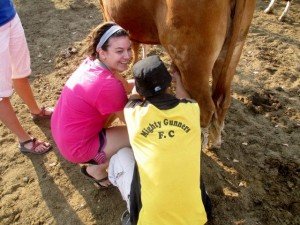 At night we gathered together for conversation, games, singing and dancing and during the day we found even more to do. It is amazing what fun you can have when you don’t have a television to rely on. We hiked the mountains as a big family to watch the sunset, rode horses and chased the goats, played games, made our own swimming pool to take a break from the heat, and even pulled all our beds together and slept under the stars. There was never a moment that I wasn’t the happiest I have ever been. People worked very hard on the farm, but they played hard too. Throughout everything they seemed carefree, despite problems they could have been facing. My favorite memory is everyone singing a song in Damara entitled, “!Gâi tsedi Iguidi” meaning “Good Days Only,” and I feel this embodies their outlook and attitudes. Everyone got up and danced around, clapping and singing loud and everyone was really connected.
At night we gathered together for conversation, games, singing and dancing and during the day we found even more to do. It is amazing what fun you can have when you don’t have a television to rely on. We hiked the mountains as a big family to watch the sunset, rode horses and chased the goats, played games, made our own swimming pool to take a break from the heat, and even pulled all our beds together and slept under the stars. There was never a moment that I wasn’t the happiest I have ever been. People worked very hard on the farm, but they played hard too. Throughout everything they seemed carefree, despite problems they could have been facing. My favorite memory is everyone singing a song in Damara entitled, “!Gâi tsedi Iguidi” meaning “Good Days Only,” and I feel this embodies their outlook and attitudes. Everyone got up and danced around, clapping and singing loud and everyone was really connected.
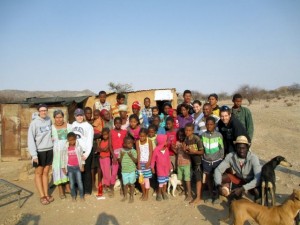 I truly admired them for this and for so many other things. Their values impressed me and their creativity inspired me. They somehow found the strength to forgive after every despicable thing they have been put through and focused on treating each other and guests with love and respect, regardless of who they are. Children on these farms built incredible toys and adults fashioned all kinds of tools out of recycled products and minimal resources. They use what they needed and didn’t waste and living here for a week makes me realize the obscene amount of things that I consume needlessly. With everything, I felt they were living a life that was kind to others and didn’t infringe on their way of life and a life that didn’t use more than their portion of this world. If looking at things like this, they are helping others more than anyone could ever help them and I thank them.
I truly admired them for this and for so many other things. Their values impressed me and their creativity inspired me. They somehow found the strength to forgive after every despicable thing they have been put through and focused on treating each other and guests with love and respect, regardless of who they are. Children on these farms built incredible toys and adults fashioned all kinds of tools out of recycled products and minimal resources. They use what they needed and didn’t waste and living here for a week makes me realize the obscene amount of things that I consume needlessly. With everything, I felt they were living a life that was kind to others and didn’t infringe on their way of life and a life that didn’t use more than their portion of this world. If looking at things like this, they are helping others more than anyone could ever help them and I thank them.
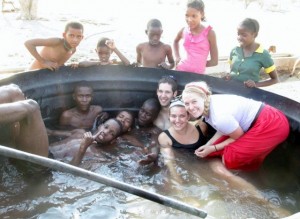 When I step back and look at their community I am in awe. I also realize that the industrialization that the Namibian government talks about or the international aid that countries offer could be detrimental to this. Before people go in and begin giving what they think these people need, one should think deeply about how it will change them. My advice is that we begin living lifestyles that are kind and don’t harm others, instead of trying to counteract that by then fixing them or sending what we think they need. Consider the reasoning behind the need for aid. More importantly, before pinpointing every “need,” take a step back and take in all there is to gain from places different from our own. I truly believe a better service to society would be appreciating communities like the one I stayed in, releasing our judgements and absorbing the lessons they can teach us.
When I step back and look at their community I am in awe. I also realize that the industrialization that the Namibian government talks about or the international aid that countries offer could be detrimental to this. Before people go in and begin giving what they think these people need, one should think deeply about how it will change them. My advice is that we begin living lifestyles that are kind and don’t harm others, instead of trying to counteract that by then fixing them or sending what we think they need. Consider the reasoning behind the need for aid. More importantly, before pinpointing every “need,” take a step back and take in all there is to gain from places different from our own. I truly believe a better service to society would be appreciating communities like the one I stayed in, releasing our judgements and absorbing the lessons they can teach us.
One of the host fathers shared how much he appreciated us coming to his farm and learning about his family. This left me speechless because I could never begin to describe everything I have gained from spending just one week with them.
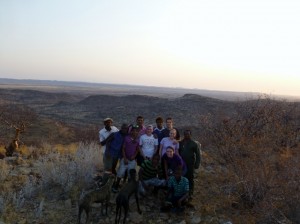
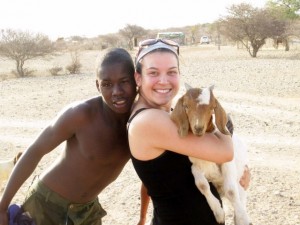
Leave a Reply